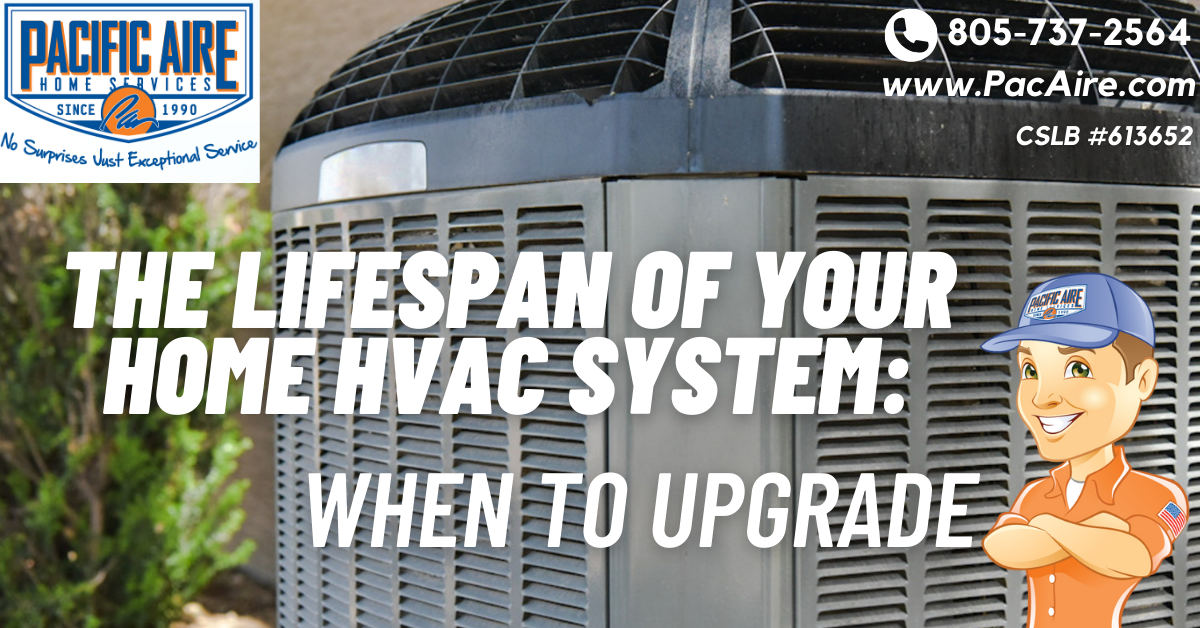Selecting the right HVAC system for your home is crucial to maintaining indoor comfort and air quality. Understanding when to replace your HVAC system can save you money and enhance your overall living experience. In this article, we will explore the typical lifespan of HVAC units, signs indicating the need for an upgrade, and the benefits of choosing an energy-efficient replacement.
How Long Do HVAC Systems Last?
The longevity of HVAC systems varies depending on factors such as system type, insulation, maintenance, and climate. On average, residential HVAC systems last between 10 to 25 years. However, insufficient insulation and air leaks can significantly reduce their lifespan, even with energy-efficient models.
Factors Influencing HVAC Lifespan:
Several factors impact the lifespan of HVAC units, including the type of system, insulation levels, regular maintenance, air sealing, temperature preferences, and local climate conditions. Proper insulation and professional air sealing create a thermal boundary, preventing unnecessary strain on the HVAC system and improving its efficiency.
Lifespan of Popular HVAC Systems:
Different HVAC systems have varying lifespans. Window Unit ACs typically last 10 years, residential single whole-home units last around 15 years, while heat pumps and steam boilers can last up to 25 years, respectively.
Signs It’s Time to Replace Your HVAC System:
Rising Energy Bills:
Increasing energy costs may indicate an overworked HVAC system. If your system is compensating for poor insulation or air leaks, it could lead to higher energy consumption. Professional energy audits or inspections by HVAC technicians can identify system inefficiencies.
Poor Interior Air Quality:
Excessive dust and compromised air quality may result from an inefficient HVAC system. If your household experiences heightened allergies or respiratory issues, it may be time to switch to a cleaner, healthier system, such as an electric air-source heat pump.
Frequent Repairs:
Regular repairs can be a sign that your HVAC system has reached the end of its average life expectancy. Investing in a replacement rather than frequent high-dollar repairs can be cost-effective in the long run.
Discomfort in Your Home:
Uneven temperatures or drafty spaces may indicate underlying issues. Upgrading insulation and professional air sealing, coupled with a new HVAC system, can resolve these comfort-related problems.
Reliance on Fossil Fuels:
Older systems relying on fossil fuels can be expensive and less efficient. Considering a switch to modern HVAC technology, such as electric heat pumps, can provide cleaner and more cost-effective energy.
Use of R-22 Freon Refrigerants:
Air conditioners using R-22 refrigerants, which are being phased out due to environmental concerns, may require replacement. The rising costs and decreasing availability of R-22 justify investing in a new system.
Aging HVAC System:
An aging HVAC system approaching its average lifespan may experience performance and efficiency issues. Upgrading to modern HVAC technology can significantly improve energy efficiency.
Best HVAC System Replacement: Electric Air Source Heat Pump
An electric air-source heat pump is recommended as the most energy-efficient HVAC system replacement. Heat pumps offer both heating and cooling capabilities, using up to 1/3 less energy than traditional systems. They are cost-effective, environmentally friendly, and contribute to enhanced indoor comfort.
Rebates for Upgrading HVAC Systems:
Many utility companies offer rebates for upgrading to energy-efficient HVAC systems. Heat pumps, in particular, often qualify for substantial rebates. Additionally, new federal legislation has expanded and increased tax credits and rebates for HVAC upgrades.
In summary, knowing when to replace your HVAC system is essential for maintaining a comfortable and energy-efficient home. By considering signs of inefficiency and understanding the factors affecting HVAC lifespan, homeowners can make informed decisions about upgrading to modern, energy-efficient systems like electric air-source heat pumps. Rebates and tax credits further incentivize the transition to environmentally friendly HVAC solutions, contributing to a more sustainable and cost-effective home environment.
Visit https://www.pacaire.com/make-an-appointment/ or call us at 805-737-2564 to schedule an appointment for your home HVAC repair and replacement needs.


